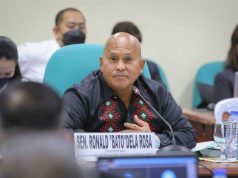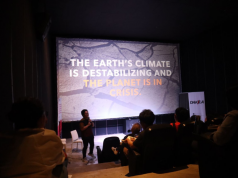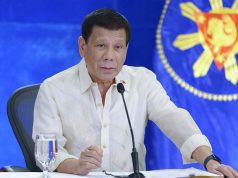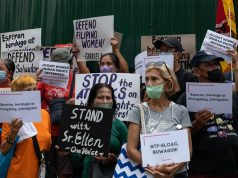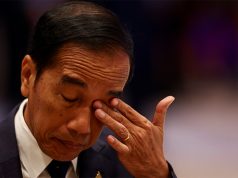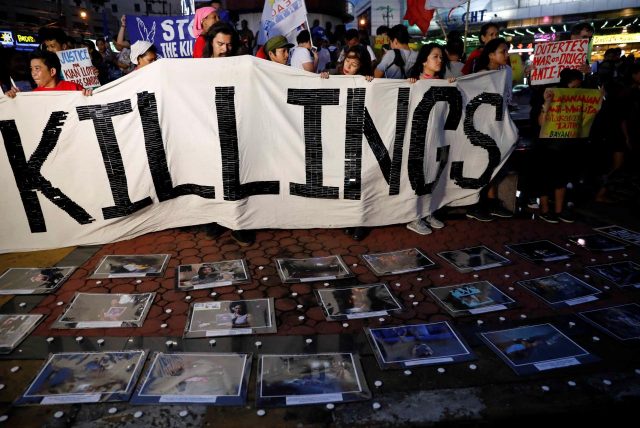
MANILA – The world is watching the Philippines, and international concern will not wane as more bodies pile up in the streets.
This is according to Human Rights Watch-Geneva Director John Fisher, who is in Manila to see the situation for himself and to meet with families of victims of alleged extrajudicial killings.
In an interview with News5’s Faith del Mundo on Sunday, he noted that more and more countries had issued statements and voiced their concern over the rights violations in the Philippines, including its key partners like the United States.
“There’s certainly not gonna be any softening in the degree of international interest until such time that the Philippine government takes seriously the international concerns and puts an end to the campaign of killings and holds others to account,” Fisher declared. “So far we’ve seen no sign of this happening.”
“Much as President Duterte might wish that the issue would just go away and the world would turn its back on people who are being killed in the name of his murderous war on drugs, that’s not gonna happen. The world is watching,” he added.
Fisher pointed out that the fact that United Nations Secretary General Antonio Guterres himself raised his concerns with Foreign Affairs Secretary Alan Peter Cayetano recently was “an indication that it’s gone to the highest level of the UN system.”
“A year ago the Philippines wasn’t even on the radar of the UN,” Fisher said. “Now, unfortunately it is, and for the worst possible reason.”
The UN is sending a “very strong and powerful message” that it is not going away, it is monitoring the events, and it will take action, he added.

Pattern of denial
During the recent review of its rights record by the UN Human Rights Council, the Philippines rejected recommendations such as conducting thorough investigations of extrajudicial killings, and allowing UN Special Rapporteur Agnes Callamard into the country to probe the EJKs.
In reaction to this, Fisher said, “There’s every reason to believe that the numbers will continue to spiral out of control.”
He appealed to the Philippine government to allow Callamard into the country so she can do an independent probe into the EJKs, despite Cayetano saying she had “prejudged the human rights situation” and was “in league with (the) political opposition.”
“Callamard is the main UN expert appointed to looking into exactly the kind of challenges that the PH is facing,” Fisher pointed out in his interview with News5.
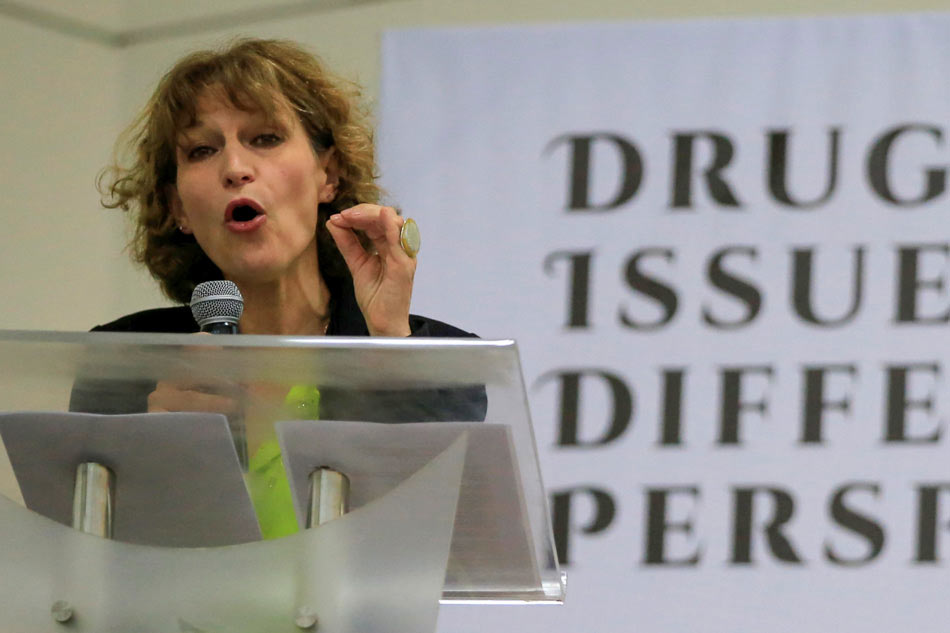
As a member of the UN’s “top human rights body,” the UN Human Rights Council, the Philippines is required to uphold the highest standards of human rights and to cooperate with the UNHRC and its mechanisms, including the special rapporteur on EJKs, Fisher explained.
“Clearly the Philippines strikes out on both counts,” he said.
“It’s a pattern of denial that we are seeing from President (Rodrigo) Duterte,” Fisher added. “It does send a message to the United Nations that if the government is not serious about ending these violations of the right to life and putting in place some kind of investigation, then the next step obviously has got to be some kind of independent international investigation.”
While he acknowledged Cayetano’s statement “welcoming experts to conduct an objective assessment of the human rights situation in the Philippines,” Fisher said that the real test is whether indeed the government will allow such a team to visit.
“Until people are held accountable, until the conduct of the campaign actually changes so that people no longer needlessly lose their lives, then of course, there won’t be a resolution to it,” he said.
Accusations of ‘bias’ expected
Meanwhile, he also noted that as a human rights organization working with governments around the world to document violations, Human Rights Watch regularly sees that when state abuses are exposed, governments accuse those who uncover these of bias.
“I think that we’ve seen that the government and President Duterte regularly accuses of bias any independent voices that are critiquing the killings associated with the so-called war on drugs, whether that’s the UN expert, whether it’s the high commissioner for human rights who President Duterte has also denounced, whether it’s human rights organizations like our own, whether it’s the Commission on Human Rights, whether it’s other NGOs working in the human rights field. And that’s part of the concern as well is that often what starts as a campaign against a particular group of people or community often spreads to include a campaign against any critical voices, accusing them of bias and even making threats against their safety and well-being,” Fisher explained.
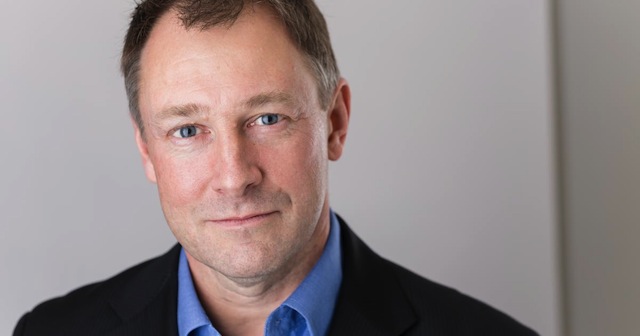
But what is more important than what Human Rights Watch wants to happen is what the families of the victims want. When he met some of the families on Sunday morning, Fisher said they told him, “We want to know what happened. We want justice. We want to feel that those who killed our brother or mother or father are gonna be held responsible for their actions.”
“It is sad when family members are gunned down in their own house. We met this morning with three kids: the parents, were tortured and their parents were dead. They saw their parents being gunned down. They don’t have faith in legal authorities,” Fisher added.
They promised the families of victims that they will continue to investigate and continue their call for action until they see the end the killings.
Upon his return to Geneva, Fisher will speak with representatives of some of the countries that expressed their concern over the situation in the Philippines and relay the families’ messages to them.
WATCH A RELATED NEWS5 VIDEO REPORT:





